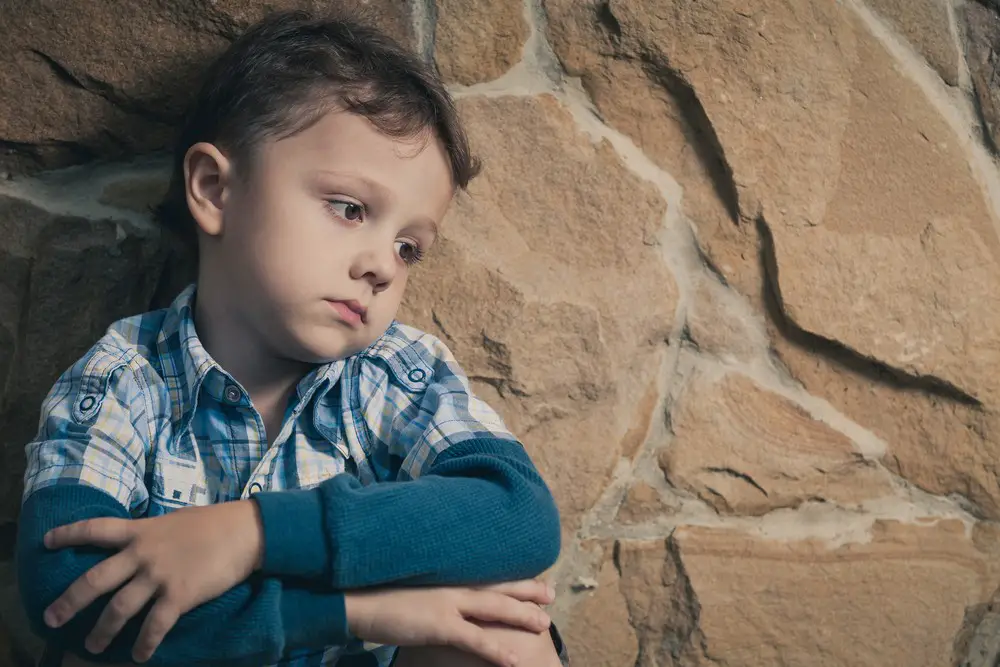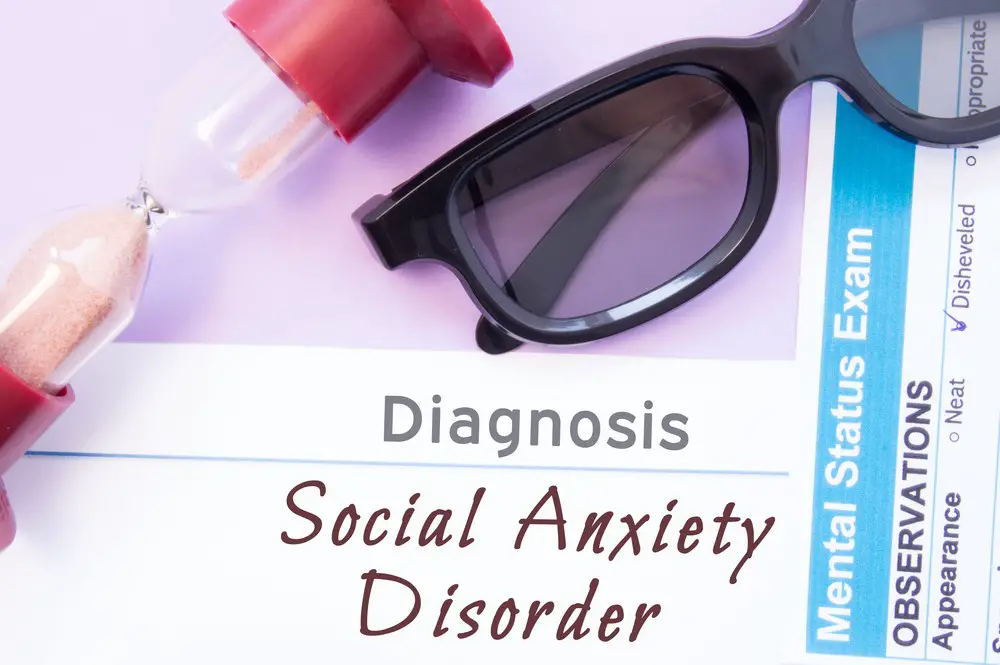As a BetterHelp affiliate, we receive compensation from BetterHelp if you purchase products or services through the links provided
It can be challenging to differentiate between autism and social anxiety. Both conditions have many similarities, yet there are also distinct differences that need to be taken into consideration when diagnosing or treating either one.
In this blog post, we’ll explore the comparison of autism vs. social anxiety, from understanding what each condition is and how they differ to learning about famous people with either disorder, discovering the benefits of recognizing the distinction between them both, and finally exploring resources for those affected by either condition as well as tips and strategies for coping. It’s essential to understand what separates these two disorders and why it matters to provide care for individuals who may suffer from one or both mental health issues.
Table of Contents:
What is Autism?
Autism, also known as an autism spectrum disorder (ASD), is a complex neurological and developmental disability that affects how an individual interacts with their environment and other people. Difficulties in communication, social interaction, and repetitive behaviors characterize it. Autism can range from mild to severe and can affect individuals differently.
Definition of Autism:
Autism is a lifelong condition typically appearing during the first three years of life. It affects each person differently, making it difficult to define one single definition for all those affected. Generally speaking, autism involves difficulty with communication skills such as understanding language or expressing oneself verbally or non-verbally; difficulty interacting socially; restricted interests; sensory sensitivities; or repetitive behaviors.
Symptoms of Autism:
The symptoms of autism vary greatly depending on the individual’s age, level of functioning, type of diagnosis (e.g., Asperger’s Syndrome vs. Autistic Disorder), etc., but some common signs include delayed speech development, lack of eye contact when communicating with others; poor social skills such as not responding to questions or initiating conversations appropriately; avoidance or resistance to physical touches like hugs or handshakes; limited interest in activities most people enjoy like sports or playing board games; rigid adherence to routines and rituals which may interfere with daily tasks like getting dressed in the morning; hypersensitivity to sound, light, touch, taste, smell; self-stimulatory behavior such as rocking back and forth while flapping hands; repetition of words spoken by others; an intense focus on specific topics.
Causes Of Autism :
The exact cause(s) behind autism is still unknown. Still, there are many theories about what might be causing this disorder, including genetics, environmental factors such as exposure to toxins during pregnancy, and complications during the birth and delivery process. Research suggests that certain combinations between these two areas could be responsible for the development of ASD.
Autism is a complex neurological disorder that affects individuals in many different ways. Although it can be challenging to understand, understanding the symptoms and causes of autism can help create better support systems for those affected. Now let’s explore social anxiety and how it differs from autism.
 What is Social Anxiety?
What is Social Anxiety?
Social anxiety is an anxiety disorder involving intense fear or worry about social situations. People with social anxiety often feel anxious in situations where they may be judged by others, such as public speaking, meeting new people, or attending parties. This fear can lead to physical symptoms such as sweating, trembling, and difficulty talking.
Definition of Social Anxiety: Social anxiety is an excessive fear of being judged negatively by others in social settings. It is more than just feeling shy or uncomfortable around other people; it can cause significant distress and interfere with daily activities.
Common symptoms associated with social anxiety include feelings of nervousness or dread before entering a situation involving other people; avoiding conversations due to worries about saying something wrong; blushing easily when interacting with others; having trouble making eye contact during conversations; feeling like everyone is watching you critically while in public places; and experiencing physical symptoms such as sweating, trembling, nausea, rapid heartbeat, and difficulty breathing when faced with certain social situations.
The exact cause of social anxiety disorder is not known. However, several factors may contribute to its development, including genetics (family history), environment (traumatic experiences), and brain chemistry (imbalance in neurotransmitters). Additionally, some research suggests that early childhood experiences such as bullying or peer criticism can increase the risk of developing this condition later in life.
Social anxiety can be a complex condition to live with, but understanding its causes and symptoms is an essential first step in managing it. Now let’s look at how autism and social anxiety compare.
 Comparing Autism and Social Anxiety
Comparing Autism and Social Anxiety
Autism and social anxiety are two distinct conditions that can be easily confused. While both involve difficulty in communication, there are essential differences between the two disorders.
Similarities between Autism and Social Anxiety: Both autism and social anxiety share common characteristics such as difficulty with communication, avoidance of certain situations or people, repetitive behaviors, sensory sensitivities, and an inability to read facial expressions or body language accurately. Additionally, those with either condition may experience fear or worry when faced with unfamiliar environments or people.
The primary difference between autism and social anxiety is that while individuals with autism often have difficulty understanding the emotions of others due to a lack of empathy, those who suffer from social anxiety do not necessarily have this same deficit but instead feel overwhelmed by their emotional reactions in certain situations which leads them to avoid these scenarios altogether. Additionally, individuals on the spectrum typically exhibit more rigid behavior patterns than those suffering from social anxiety disorder, who tend to be more flexible in their approach to new experiences despite feeling anxious about them.
Although Autism and Social Anxiety are two different conditions, they share many commonalities in diagnosis and treatment. In the next section, we will explore some famous people who have either Autism or Social Anxiety.
Famous People with Autism or Social Anxiety
Autism is a developmental disorder that affects communication and behavior. It is estimated that 1 in 59 children is diagnosed with autism spectrum disorder (ASD). Many famous people have been diagnosed with ASD, including actors, musicians, and athletes.
One of the most well-known celebrities on the autism spectrum is Dan Aykroyd. He was diagnosed at age 17 after experiencing difficulty in school due to his social anxiety and obsessive-compulsive behaviors. Other notable celebrities include Daryl Hannah, who has Asperger’s Syndrome; Susan Boyle, who has mild autism; and singer/songwriter James Durbin, who was diagnosed as a child.
Musician Moby also has Asperger’s Syndrome and wrote about it in his memoir “Porcelain: A Memoir” where he discussed how he overcame challenges associated with having an ASD diagnosis such as sensory overload from loud noises or bright lights. Professional golfer Tiger Woods also revealed that he had been living with ADHD since childhood but did not receive an official diagnosis until adulthood, when he sought help for his struggles related to concentration issues during tournaments.
Celebrities With Social Anxiety Disorder
Social anxiety disorder (SAD) is characterized by an intense fear of being judged by others or feeling embarrassed in public situations like speaking up during meetings or attending parties alone. While some people may experience occasional bouts of shyness or self-consciousness, those suffering from SAD can feel extreme levels of distress that interfere with their daily lives even when familiar faces surround them or engage in activities they enjoy doing, usually without any stressors present.
It may surprise that celebrities, which usually appear confident and outgoing, can suffer from SAD. Here are some of the most notable stars with social anxiety disorder:
1. Emma Stone – The Academy Award-winning actress has been open about her struggles with SAD since she was a child. She credits her success to facing her fear head-on and working hard to overcome it.
2. Adele – The beloved British singer has admitted to having debilitating levels of stage fright when performing in front of large audiences, which almost caused her to quit singing altogether. She now uses relaxation techniques like yoga and meditation to help her manage the symptoms of SAD before a show or interview.
3. Kristen Stewart – The Twilight star has discussed her struggles with SAD in various interviews. She’s said she often avoids parties and public gatherings because of the fear that comes along with them. However, she’s learned to manage her anxiety by surrounding herself with trusted individuals who understand her.
4. Hugh Jackman – The Wolverine actor has been open about his struggle with SAD as a teenager, which led him to stay away from school for weeks. He credits therapy and positive thinking as the tools he used to overcome his disorder.
5. Ryan Reynolds – The Deadpool star is known for his comedic roles, but he, too, had to battle social anxiety when he was younger. In an interview, Reynolds credits his wife, Blake Lively, for helping him overcome his disorder.
These celebrities have shown that even though you may struggle with social anxiety, it doesn’t have to stop you from being successful or living a fulfilling life. With the right support system and coping mechanisms, individuals can learn to manage their SAD to lead more joyful and productive lives.
It is inspiring to see how many celebrities have overcome their autism or social anxiety, and understanding the difference between these two conditions can help those affected by either one. Now let’s take a look at the benefits of understanding this distinction.
Benefits of Understanding the Difference Between Autism and Social Anxiety
Understanding the differences between autism and social anxiety can profoundly impact those affected by either condition. Improved quality of life is one of the primary benefits associated with understanding the distinction between these two conditions. For example, individuals who are diagnosed with autism may find that they benefit from different types of therapies than those recommended for people with social anxiety disorder. Knowing which type of therapy will be most effective for each individual can help to ensure that their treatment plan is tailored to their specific needs.
Increased awareness in society about both conditions is another benefit associated with understanding the difference between autism and social anxiety. Educating others about how these two conditions differ helps reduce stigma and increase acceptance within our communities. This improved understanding can also lead to better access to resources such as support groups or specialized services that cater to individuals with either condition.
Understanding the differences between autism and social anxiety can benefit those affected by either condition and society. By becoming informed about both conditions, we can access resources to better support those living with them. Let’s take a look at some of these resources now.
Resources for Those Affected by Either Condition
Online Support Groups
Finding a support group can be an invaluable resource for those affected by either autism or social anxiety. Online support groups allow one to connect with others dealing with similar issues and share experiences, advice, and coping strategies. These online communities often offer resources such as articles, videos, podcasts, and discussion forums to help individuals better understand their condition and learn how to manage it more effectively.
Professional Therapy Services
Therapy is another great option for those affected by either autism or social anxiety. Professional therapists can provide individualized treatment plans tailored specifically to the needs of each person. They also offer guidance on developing effective coping strategies that can help reduce symptoms of both conditions over time. Additionally, therapy provides a safe space where individuals can discuss their feelings without judgment to gain insight into their behavior patterns and make positive changes in their lives.
Educational Materials Available Online or in Print Formats
Finally, many educational materials are available online or in print formats that cover autism and social anxiety disorders. These materials include books written by experts on the topics and research studies from universities around the world which provide valuable information about both conditions, including causes, treatment options, lifestyle modifications, etc. Additionally, there are websites dedicated solely to providing information about these two conditions, which may be helpful for further understanding of them both individually and collectively.
Finding the right resources to help manage either condition can be daunting, but it is possible with proper guidance and support. The following section will provide tips and strategies for coping with either autism or social anxiety.
Tips and Strategies for Coping
Self-Care Strategies to Manage Stress Related to either Condition: Self-care is an essential part of managing stress related to either condition. Taking time for yourself and engaging in activities that bring you joy can help reduce the symptoms associated with both autism and social anxiety. Examples of self-care strategies include taking a walk, listening to music, reading a book, or spending time with friends and family. Additionally, setting aside some time each day for relaxation can be beneficial in reducing stress levels.
Cognitive Behavioral Therapy Techniques to Help Manage Symptoms: Cognitive behavioral therapy (CBT) is a type of psychotherapy that focuses on helping individuals recognize negative thoughts and behaviors contributing to their symptoms. CBT techniques such as identifying triggers, challenging negative thought patterns, reframing situations in more positive ways, developing coping skills, and problem-solving can all help manage the symptoms associated with autism and social anxiety.
Mindfulness practices are another way of managing stress related to either condition. Mindfulness involves focusing on being present at the moment without judgment or expectation. Practicing mindfulness through meditation or yoga can help reduce worry or fear while also increasing awareness about one’s thoughts and emotions, which can lead to improved mental health.
FAQs
Can social anxiety be mistaken for autism?
No, social anxiety and autism are two distinct conditions. Social anxiety is an anxiety disorder that causes intense fear in social situations. It can lead to avoidance behaviors or physical symptoms such as sweating, trembling, or feeling sick. Autism spectrum disorder (ASD) is a developmental disability characterized by difficulty with communication and social interaction, repetitive behavior patterns, and restricted interests. While people with ASD may experience some social anxiety due to their problems interacting with others, it does not mean they have the same condition as someone diagnosed with an anxiety disorder.
Am I autistic or just socially awkward?
It is impossible to answer this question definitively without more information. It is possible that you are autistic, or it could be that you are socially awkward. Suppose your symptoms interfere with your daily life and relationships. In that case, it may be beneficial to speak with a mental health professional who can assess the situation and advise on managing any issues. They can also help determine if an autism diagnosis is appropriate for you.
Conclusion
In conclusion, understanding the differences between autism and social anxiety can benefit those affected by either condition. It is important to remember that both conditions are unique and require individualized care. Many resources are available to help those with autism or social anxiety, such as therapy, support groups, online communities, and more. By taking advantage of these resources and utilizing tips and strategies for coping with either condition, individuals can learn how to manage their symptoms to lead healthier lives. Understanding the difference between autism vs social anxiety can help provide insight into how best to approach treatment options for each individual’s needs.
Do you or someone you know suffer from autism or social anxiety? If so, we can help. Rest Equation is here to provide advice for stress relief and information about therapy that may be beneficial in dealing with these issues. Don’t let fear of the unknown hold you back – reach out today and start on your path to a healthier life!
- 3 Ways Wearing a Hat Can Help Lower Your Stress Levels - April 19, 2025
- Breaking the Silence: Why Men’s Mental Health Matters More Than Ever - April 15, 2025
- How to Transform a Home’s Patio Space into a Relaxing Space - March 23, 2025
This site contains affiliate links to products. We will receive a commission for purchases made through these links.


 What is Social Anxiety?
What is Social Anxiety? Comparing Autism and Social Anxiety
Comparing Autism and Social Anxiety


